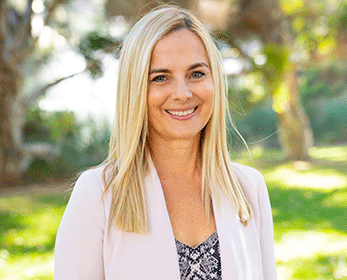Three researchers from Edith Cowan University (ECU) have been awarded grant funding from the National Health and Medical Research Council (NHMRC) as part of a national initiative to improve health for all Australians.
Dr Emmanuel Adewuyi from ECU's Centre for Precision Health (CPH) will receive more than $662,000 over five years under the Investigator Grant to study the conditions and diseases commonly found in people living in dementia, known as comorbidities, at a genetic level.
While these comorbidities can cause problems, Dr Adewuyi said they may also be the key to creating treatments for the various forms of dementia, including Alzheimer's Disease and frontotemporal, Lewy body, and vascular dementia.
"All of these forms currently have no curative or disease-modifying treatments, largely because of their poorly understood biological mechanisms," he said.
"Observational data suggests dementia co-occurs with a range of conditions, such as inflammatory, stress-related, and autoimmune disorders. These comorbidities can worsen disease severity and accelerate cognitive decline - but may also be involved in dementia's pathogenesis."
The research programme will use large amounts of genetic data to investigate the shared biological underpinnings between dementia and potential comorbid traits. Understanding these similarities will provide opportunities to develop strategies to prevent the disorder or create new therapies.
Meanwhile, ECU Senior Research Fellow Dr Catherine Bondonno has been awarded more than $679,000 under the Ideas Grant to unravel the long-standing debate surrounding nitrate, a compound found in meat, water, and vegetables, and its impact on human health.
For over 50 years, regulations and concerns about cancer risks associated with nitrate consumption have shadowed its potential benefits, particularly from vegetables. The controversy stems from the conversion of nitrate to nitrite, which can lead to the formation of carcinogenic N-nitrosamines.
"Conducting six human studies, we will dissect the nitrate-cancer link and its broader health implications. This research will explore whether the dietary source of nitrate - be it from meat, water, or vegetables - alters its effects on the human body. This research also aims to investigate the potential protective role of nitrate in conditions such as cardiovascular disease, cognitive decline, dementia, and diabetes," said Dr Bondonno.
"The current scientific and public health consensus for nitrate is that it is a potentially toxic/carcinogenic contaminant in meat, water, and vegetables. We believe that this view is incorrect: it is not supported by available evidence, but definitive studies have yet to be performed.
"This cohesive series of projects will challenge the current perspective. Results will change legislation, regulations, public health messaging, farm practices and community perceptions of nitrate-rich vegetables. They will inform the acceptable daily intake of nitrate, which currently does not differentiate between sources.
"Ultimately this will remove a barrier to increased intake of nitrate-rich vegetables and lead to higher nitrate intakes, resulting in improved cardiovascular, cognitive, and diabetic outcomes and a reduction in the current near $12 billion economic burden of these diseases to Australia," Dr Bondonn said.
ECU Postdoctoral Research Fellow Dr Liezhou Zhong has also been awarded more than $719,000 to continue his extensive research into e the adoption of state-of-the-art 3D printed foods, which will be rolled out in aged care facilities for elderly residents who have chewing and swallowing difficulties (dysphagia).
"We will work closely with our industry partner, Brightwater Care Group, to implement the technologies and the developed food products at aged care facilities, Dr Zhong said.
"This project can provide fundamental evidence on the feasibility of 3D food printing in improving food intake and eating experience in aged care residents, therefore, reducing preventable malnutrition in the residents. We have built a multidisciplinary team that brings together world-renowned researchers in aged care, nutrition, food science and technology, speech pathology, dietetics, agriculture, public health, and implementation science."
Dr Zhong said that the NHMRC funding would enable him to enhance the capacity of 3D food printing further and create more nutritious, ready-to-print and consume texture modified foods, particularly fruit and vegetable-based options.
"The outcomes will provide translatable evidence regarding the health potentials of the developed technology and food products. Therefore, it will undoubtedly support my research to develop and implement approaches to improving the nutrition and health of many people on texture modified foods, beyond residential aged care, such as people with multiple sclerosis, dementia and other neurodegenerative disorders, stroke and cancer survivors, and children with autism."

 Three grants were awarded to ECU researchers as part of a nation-wide initiative to improve health in all Australians
Three grants were awarded to ECU researchers as part of a nation-wide initiative to improve health in all Australians




